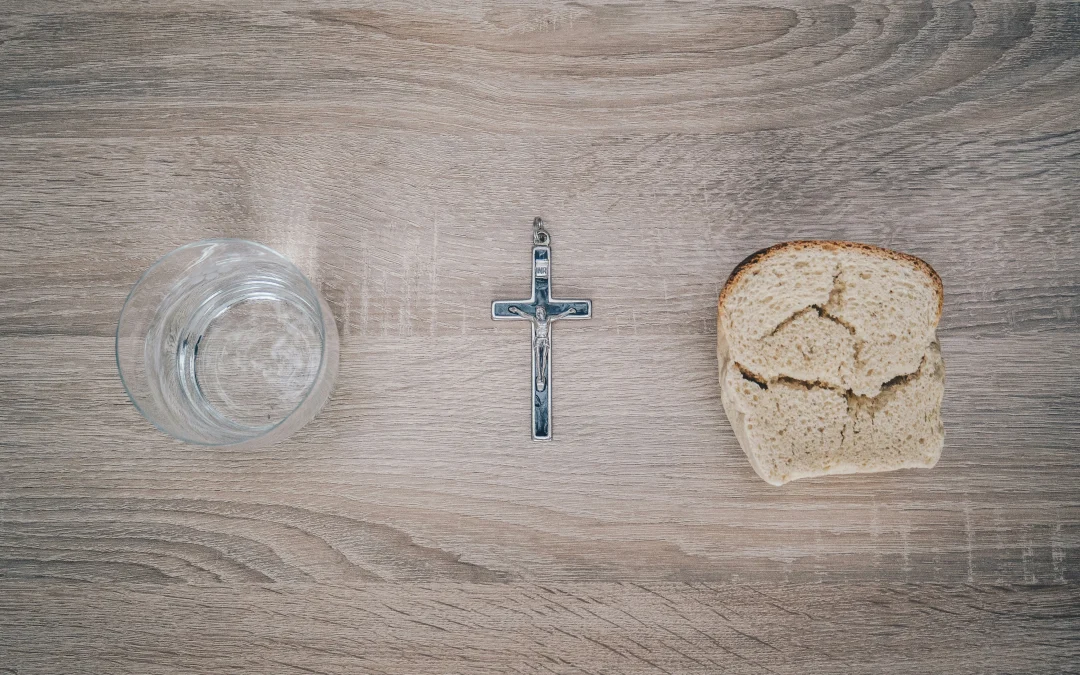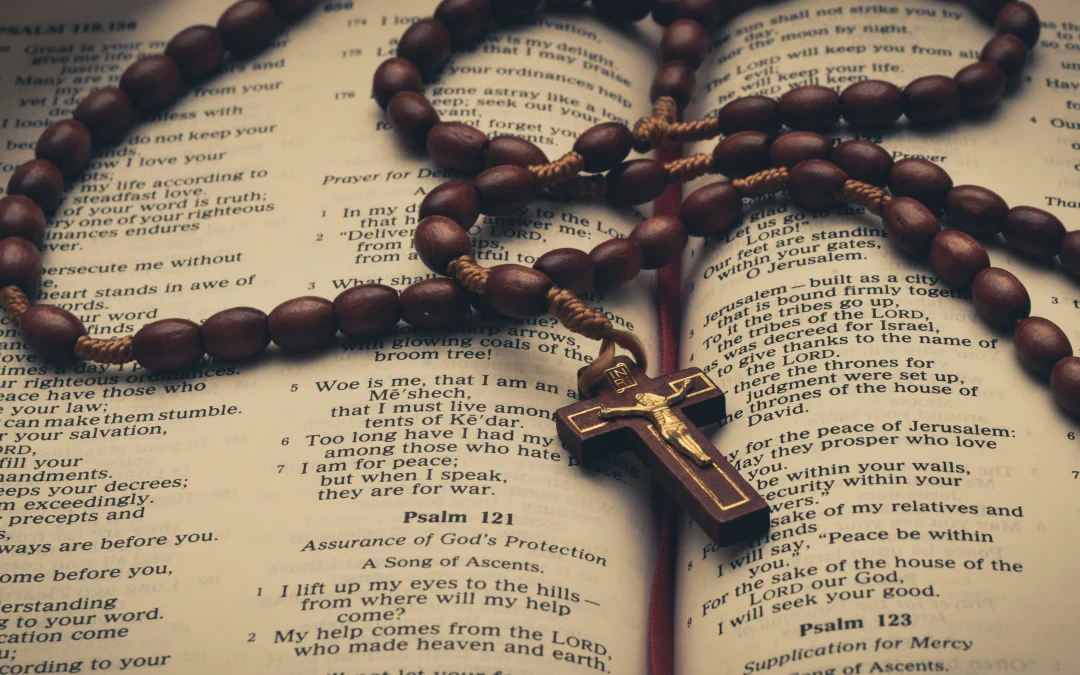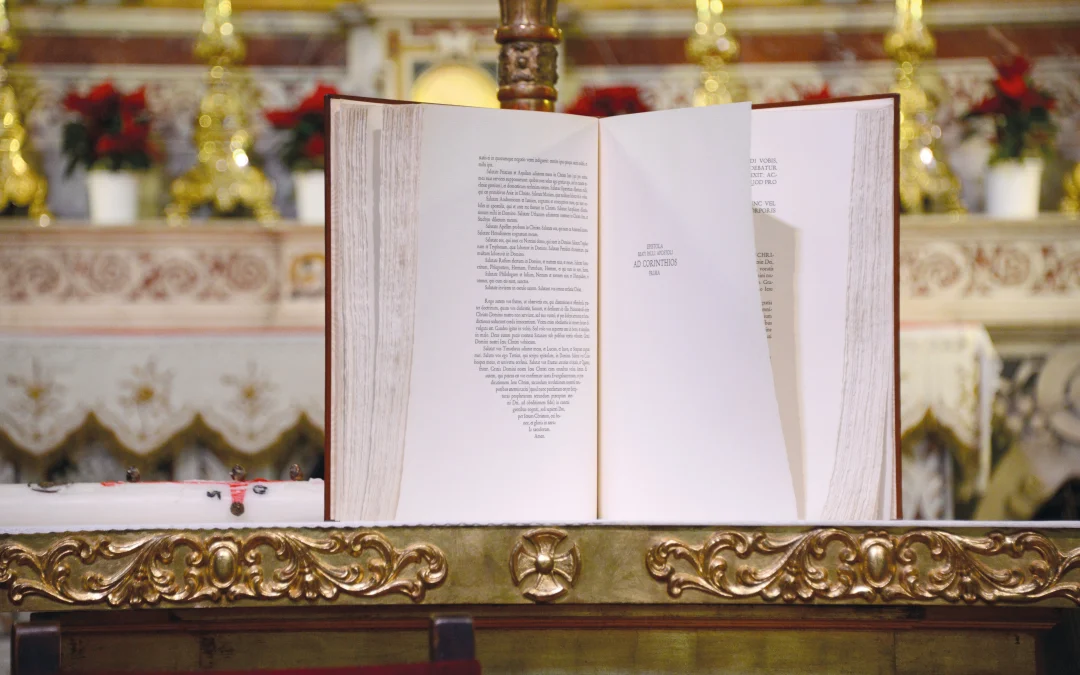I met a guy who’s not Catholic, but he’s Christian. He’s really nice and loves Jesus, and we agree on most things. Should I date him?
This, or some variation of it, is one of the most common questions I get asked as a speaker and author of a book on Catholic dating. As with many questions that start with “should,” the answer isn’t a simple yes or no, but “it depends.” I’ve seen plenty of couples who started off in different faiths or denominations, but are now both happily married and happily Catholic. But I’ve also seen couples whose faith differences led to the Catholic spouse losing his or her faith, or major tensions in the marriage, or simply a bad breakup. So, the answer will depend on lots of factors, including how similar your beliefs already are and how open this guy (or girl) is to learning more about Catholicism.
First of all, I do recommend going on up to three dates just to get to know him a little better, without getting too intimate either physically or emotionally. Sometimes, you’ll find that those first few dates make your decision easy: you aren’t attracted to him after all, or you discover some other major red flag.
If that doesn’t happen—you’re still interested, and the religious difference is the only “yellow flag” you’re seeing—I still don’t recommend jumping straight into a super-committed relationship or breaking it off immediately. Instead, gradually deepen your intellectual and emotional relationship, and take physical affection very slowly and carefully.
Meanwhile, start intentionally bringing up your beliefs on marriage, sex, and children—which are the ultimate goals of any dating relationship—and asking him about his. Some non-Catholic Christians will strongly disagree with Catholic beliefs on marriage and sexuality, while others might agree with you just fine. It’s important to discuss these things pretty early, sharing your beliefs and asking him to be honest about whether they are compatible with his.
So, what should your beliefs be? Here’s a refresher on what the Catholic Church teaches about marriage, children, and sex.
Catholic Church Teaching On Marriage, Children, And Sex
- Marriage is a lifelong, exclusive commitment—no divorce! Divorce does not end a marriage in God’s eyes, and someone who is divorced and whose spouse is still living is not eligible for remarriage (unless the Church has declared the original marriage null or invalid). If there is a very serious problem, such as abuse, the Church allows spouses to live separately and maybe even get a legal divorce if it’s necessary to sort out child custody and finances. But without an annulment, the divorce is only a legal separation, and spouses are still married until one of them dies. (For the root of this teaching, see Jesus’s statements in Matthew 19:6 and Mark 10:11. For more about annulment, see this handy infographic.)
- Marriage must be open to life—no birth control! This is a big topic, but here’s a simplified explanation. God created Adam and Eve male and female, gave them to each other, and told them to increase and multiply. Because of our very nature, marriage, sex, and children must stay connected, not artificially separated from each other. So, any form of birth control (including hormonal forms, barrier methods, sterilization surgeries, spermicides, “pulling out,” or oral or anal sex) is wrong and damages the core of what sex and marriage are all about.
If a couple has prayerfully discerned that they have a serious reason to avoid pregnancy right now, they can track the woman’s cycle and avoid sexual activity during fertile times (this is usually called Natural Family Planning or NFP). Done with the right intention, this is not sinful because it works with God’s design for the body and marital union. But sin comes in when the couple purposely introduces something into the sexual act, or changes the act itself, in an attempt to have the pleasure of sex without accepting the possibility of pregnancy.
- Sex is completely reserved for marriage. This one is pretty simple. Absolutely no sex outside of marriage! This includes anything that would usually be considered foreplay, or anything that tends to make you or the person you’re dating highly aroused, because arousal is the body preparing for sex.
This is important because sex can lead to babies, and it’s unjust to risk bringing a baby into the world who might grow up without a father in the home. It’s also unjust to yourself and the other person: your body releases bonding hormones when you have sex, because we are designed to bond closely with the person we might have a child with. We’re not designed to commit to someone physically without committing verbally, emotionally, intellectually, and publicly. That’s what a wedding is!
P. S. No matter how sure you are that you will marry someone, there’s no guarantee until you’re actually married. Play it safe and save sex for marriage! And make sure the person you’re dating knows early on that this is an absolutely firm boundary for you.
- The Catholic Church must approve the marriage. I’ll spare you the finer points of Canon Law here, but basically, if you decide to marry a non-Catholic, your first task is to contact your parish to let them know that you’re engaged to a non-Catholic, let them know whether the non-Catholic is baptized or unbaptized, and ask them what the next steps are. Parish staff will make sure you go through the right approvals to ensure that your marriage is valid. This usually means getting married at a Catholic church, with a Catholic priest or deacon as witness.
The Church forbids having a wedding ceremony that blends elements of different faiths, or having two religious wedding ceremonies for the same marriage (see Canon 1127). This is because two religious celebrations would imply that two conflicting religions or denominations are equal, and that’s just impossible: either the Catholic Church is really the one true Church God established for the salvation of souls, or it isn’t!
- Children must be raised Catholic. More specifically, the Catholic spouse must promise during the marriage ceremony to do everything in his or her power to raise the children Catholic. You definitely don’t want to surprise your intended with that information on your wedding day! Make sure you agree on this, and all the points above, before even getting engaged.
Your Goals and Desires
If you and this guy (or gal) can agree to abide by the Church’s teachings on marriage and chastity, the next thing to consider is your own deeply held desires for your life and whether they are compatible with the other person’s. How do you want family prayer to look in the home? What about holiday celebrations and the liturgical seasons? What about your children’s education—is it important to you that they go to a Catholic school? Is it very important to you to have a wedding Mass, and would your potential spouse accept that? Is it okay with you if your spouse can’t receive the sacraments of Reconciliation and Holy Communion?
It’s important to consider all of these things carefully before getting engaged, because when you marry someone, you marry him or her as they really are, right now. It’s easy to think, “Maybe God is calling me to date him so that he will convert!” Maybe, but there’s no guarantee that it will ever happen. If you go into a relationship hoping to convert someone, you run the risk of becoming a controlling partner, and maybe even pushing him away from the faith by your high-pressure behavior.
Still, be ready and eager to share your own faith. Brush up on your knowledge so you can explain when he asks questions. Invite him to Mass! And keep your own faith and prayer life thriving. Never, ever miss Sunday Mass, and go to Confession and Communion often. Regularly ask yourself (and maybe a close friend or family member too!) whether this relationship is bringing you closer to God and His Church, or doing harm to your relationship with Him. And, of course, pray for guidance, staying open to either moving forward or breaking up, no matter how hard that might be.
In other words, prioritize Jesus above everyone else, and then do what He leads you to do. He loves you more than anyone else, and His will is always the way to the most happiness, joy, and peace.












